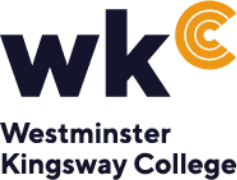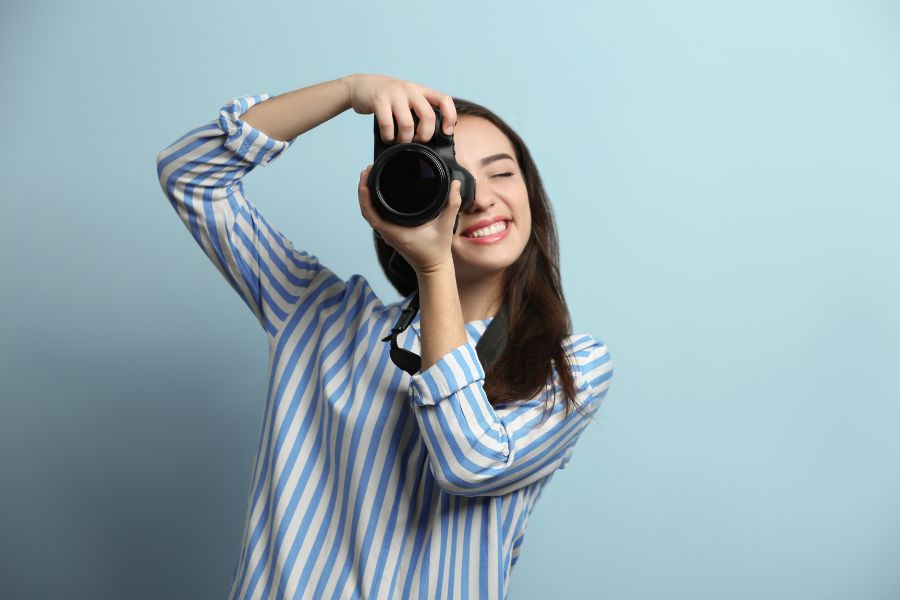
Photojournalism and Documentary Photography - Level 3 Extended Diploma (UAL)


ABOUT THE COURSE
Brand new course for 2024/25
The Photojournalism and Documentary Photography course offers an immersive exploration into the exciting world of storytelling. If you are passionate about photography and want to learn how to capture powerful narratives, this is the course for you.
You will acquire expertise in photography techniques, digital imaging, photo editing and multimedia tools. You will also learn how to identify, pitch, shoot, edit and share a photographic project.
Industry engagement is integral to the course. Through live assignments/contemporary briefs, workshops, and interactions with media professionals, you will gain practical insights, refine your skills, and prepare for the real world.
The course is awarded by the prestigious University of the Arts London (UAL). It is resourced with cutting-edge equipment and dedicated and experienced tutors. It places a strong emphasis on creatively communicating events, whilst ensuring accuracy and showing respect for the subjects captured. Also, you will have the opportunity to engage in discussions on contemporary issues in the evolving field of media and technology.
Extended Diplomas have two one-year programmes. You need to finish the first year before moving on to the second.
WHAT WILL I STUDY?
The Level 3 Extended Diploma in Photojournalism and Documentary Photography is a two-year course, which will develop your specialist knowledge. It will also galvanise your practical skills and understanding within the creative industries.
Year 1: Foundation and Fundamental Concepts
In the first year, you will dive into the essentials; learning about the history, principles, and ethics of photojournalism and documentary photography. You will get ‘hands-on’ experience with your camera, exploring photography techniques and playing with digital editing tools.
Introduction to Photojournalism:
You will learn about the role of visual storytelling and its impact on shaping narratives. Foundational modules explore the history, principles, and ethics of photojournalism and documentary photography.
Photography Techniques:
You will develop technical skills in photography, including camera operation, composition, lighting, and visual storytelling techniques. You will also be encouraged to explore your curiosity, and your photographic style - as well as your critical thinking.
Digital Imaging and Editing
You will learn to enhance and manipulate your images, using image editing tools, whilst maintaining ethical standards in photojournalism.
Documentary Storytelling:
You will engage in projects focusing on capturing narratives and conveying stories through images.
Year 2: Specialisation and Advanced Concepts
You will specialise in advanced photojournalism projects, whilst mastering ethical and legal aspects of the craft. You will explore multimedia storytelling, video journalism, and digital platforms for photojournalism and documentary photography.
Advanced Photojournalism Projects
Emphasis will be on advanced storytelling techniques, multimedia approaches, and long-term documentary projects.
Ethical and Legal Aspects
Modules cover topics such as ethics in image-making, privacy issues, and responsible reporting.
Technology Integration
You will explore multimedia storytelling, video journalism, and digital platforms for photojournalism.
Industry Engagement and Practical Assignments
You will engage with industry professionals, live assignments, or internships in news agencies, magazines, or documentary production houses.
Final Major Project and Portfolio Development
The course culminates with a major individual project, often accompanied by a portfolio, showcasing your best work and proficiency, across various photojournalism domains.
This structured breakdown ensures a progressive learning trajectory, covering foundational concepts in the initial year and allowing you to specialise, apply advanced skills, and prepare for professional roles in the dynamic field of photojournalism and documentary photography.
WHAT WILL I NEED?
You will need:
- Four GCSEs at grade 4 or above, including English Language or Maths or an equivalent Level 2 qualification at Merit (and Functional Skills in English at Level 2/GCSE English Language at grade 4 or above)
- A portfolio of your art and design work
All applicants must have an interview to confirm that the course is suitable for them.
HOW WILL I BE ASSESSED?
All assessments are based on the work you will produce. They will evaluate your theoretical understanding, technical proficiency, ethical considerations, and storytelling techniques. They will support your progression and build your confidence to step into the professional world.
Project-Based Assessments
You will complete a series of photojournalism and documentary photography projects throughout the course. These will involve creating photo essays, capturing moments, and documenting events. Assessments will evaluate the storytelling impact, the visual composition and the ability to convey messages through images.
Portfolio Development
You will compile a comprehensive portfolio showcasing your best work, demonstrating your progression, skills and versatility in photojournalism and documentary photography.
Presentations and Critiques
You will have the opportunity to present your projects to a panel of faculty, industry experts, and/or peers. This assessment method will evaluate your communication skills, your ability to explain narratives behind images and respond to critiques effectively.
Technical Skills Assessment
This will assess your proficiency in mastering visual storytelling techniques, including digital imaging, photo editing, and multimedia storytelling.
Written Assignments and Reflections
Assessments may include research, critical self-reflection and evaluation.
WHAT WILL IT COST?
Aged 16-18
If you will be aged 16, 17 or 18 on 31st August prior to the start date of your course and you have the legal right to remain in the UK for the duration of your programme then your study with us will be free. Please see here for the documents you will need to show us.
Some courses will have other associated costs, such as for specialist materials and trips. Many of our students are eligible for financial support, see here for details.
WHAT CAN I DO AFTER?
Upon completion, graduates emerge ready for roles as photojournalists, documentary photographers, multimedia storytellers, or content creators. The Photojournalism course at UAL stands as a gateway for individuals seeking to make a profound impact through powerful visual narratives and storytelling.
MEET SOME OF THE TEACHERS
Valentina joined Westminster Kingsway College in 2015, teaching Creative Media across the Digital Media department. In September 2023 they became the course leader of the Access to HE Creative Media course.
After completing their Diploma in Photography at Riccardo Bauer School of Photography of Milan, Valentina moved to New York to progress their portfolio. This was a significant turning point – Valentina discovered their passion for teaching, whilst working as a teacher assistant at the International Center of Photography, Upon returning to Italy, Valentina's home country, they worked for a variety of commissions including Grazia Neri Photo Pres Agency, Universal Music, Milano Film Festival and Pirelli P Zero Photo.
In 2006 Valentina moved to London to start a Master's course in Documentary Photography at London College of Communication. From 2010 to 2014 they directed Fotosynthesis C.I.C., a non-profit organisation that uses participatory photography for positive social change.
In 2014 Valentina undertook a Postgraduate Certificate in Education at the University of Greenwich. Valentina is currently working on an ongoing documentary project about an Irish traveller community based in East London.
At Westminster Kingsway College they have been able to continue nurturing and developing her passion for teaching Creative Media, as a way to empower and give a voice to people.
Alesander Gracia Adelino
Alesander Joined Westminster Kingsway College in 2001 where he teaches Film and VFX. With a background in Communication Science from the University of Basque County, Alesander's passion for animation, particularly stop-motion, led him to pursue a master's degree in Animation and Sculpture. He even ventured into entrepreneurship with his own production company, where he crafted captivating short movies and contributed to diverse creative projects.
Alesander's dedication extends beyond the realm of filmmaking. His extensive experience in supporting students with learning difficulties showcases his commitment to fostering an inclusive learning environment.
What truly sets Alesander apart is his genuine love for his subject matter. His fascination with animation and art is contagious, making him a dynamic and engaging educator. He believes in equipping students with a wide range of skills that not only help them discover their unique artistic tastes but also pave the way for them to achieve their dream roles in the industry.
The teachers listed may change, these shown are an example of the teachers who teach on these programmes.



